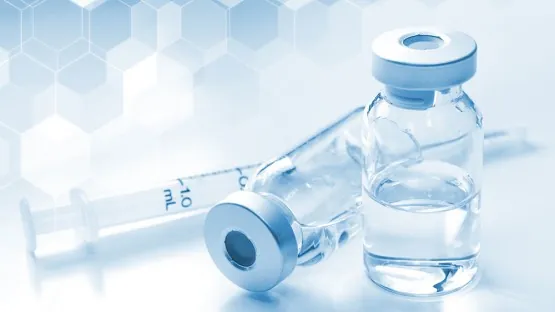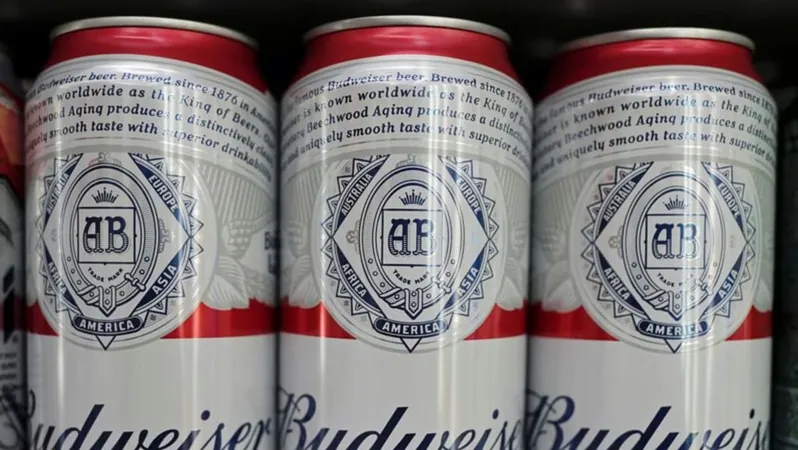
Are Social Networks Failing to Boost Vaccination Rates? Here's What Researchers Found!
2025-04-17
Author: Arjun
The Power of Social Networks: A Mixed Bag
Despite their widespread influence, social networks don’t have the unlimited power to persuade when it comes to vaccination uptake, according to fresh research from Cornell University. In a revealing study published in the journal Health Economics, researchers explored how social connections impact vaccine preferences during the COVID-19 pandemic.
Can Friendships Truly Drive Vaccine Uptake?
Co-author Nancy Chau, a professor at Cornell's SC Johnson College of Business, along with fellow researchers Arnab Basu and Oleg Firsin, sought to discover if social media friendship networks could effectively enhance vaccine uptake, especially when vaccines were initially scarce. They focused on two key aspects: whether these networks might help overcome access barriers and if they could facilitate the spread of reliable information on vaccine effectiveness based on personal experiences.
Surprising Findings: Rigid Vaccination Preferences
While previous studies have highlighted the importance of social networks during pandemics, this research revealed a surprising twist: vaccination preferences appear to be quite stubborn and resistant to change through social influence. Chau noted, “Vaccination intentions proved insensitive to persuasion, even through friendship networks that influence other health behaviors.”
Public Health at a Crossroads
With over 650 reported measles cases across 22 states and notably low vaccination rates in areas experiencing outbreaks, the implications of this research are critical for public health officials. Questions surrounding how to effectively increase vaccine uptake take center stage, especially after notable research cancellations by major health institutions.
Adapting to New Vaccine Distribution Models
The rapid rollout of COVID-19 vaccines posed unprecedented public health challenges. Unlike the mumps vaccine of the 1960s, which took four years to go from development to mass vaccination, the COVID-19 vaccines were deployed almost instantaneously through novel methods, including online reservations and pop-up clinics.
Friendship Networks and Short-Term Impact
The researchers discovered that social exposure to counties with high vaccination rates did have a short-lived effect on uptake, particularly in areas with historically low flu vaccination rates. Basu pointed out the emergence of vaccine-hunter Facebook groups that actively helped friends navigate vaccine clinics and secure appointments during times of scarcity.
The Conclusion: A Call for Active Public Engagement
Utilizing weekly vaccination data at the county level and various social network proxies, the team concluded that merely having vaccinated friends isn't sufficient to change behavior in the long run. As Chau put it, without robust public efforts to raise awareness about the importance of vaccination, simply relying on social connections may fall short in driving uptake, even against the backdrop of an urgent health crisis.

 Brasil (PT)
Brasil (PT)
 Canada (EN)
Canada (EN)
 Chile (ES)
Chile (ES)
 Česko (CS)
Česko (CS)
 대한민국 (KO)
대한민국 (KO)
 España (ES)
España (ES)
 France (FR)
France (FR)
 Hong Kong (EN)
Hong Kong (EN)
 Italia (IT)
Italia (IT)
 日本 (JA)
日本 (JA)
 Magyarország (HU)
Magyarország (HU)
 Norge (NO)
Norge (NO)
 Polska (PL)
Polska (PL)
 Schweiz (DE)
Schweiz (DE)
 Singapore (EN)
Singapore (EN)
 Sverige (SV)
Sverige (SV)
 Suomi (FI)
Suomi (FI)
 Türkiye (TR)
Türkiye (TR)
 الإمارات العربية المتحدة (AR)
الإمارات العربية المتحدة (AR)